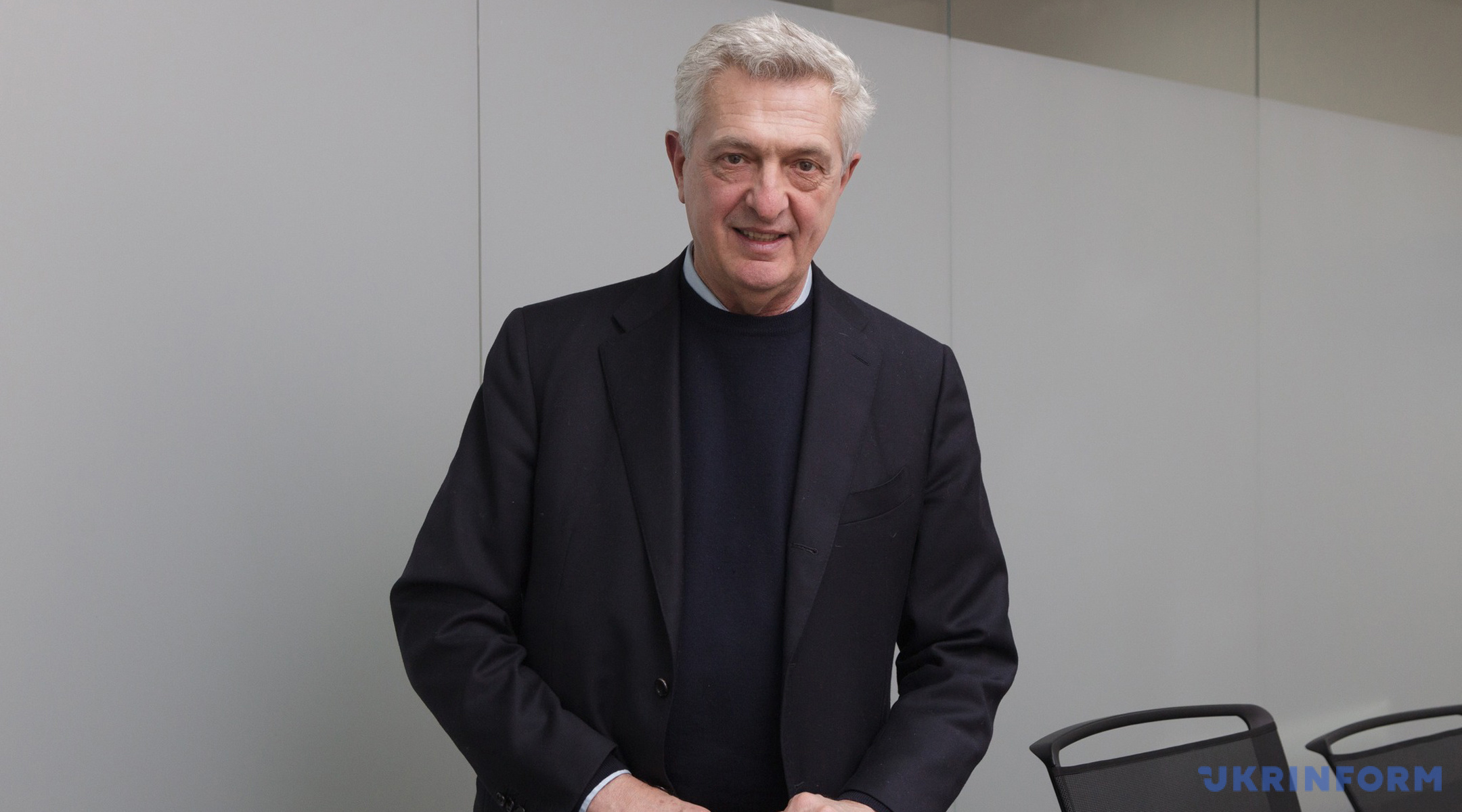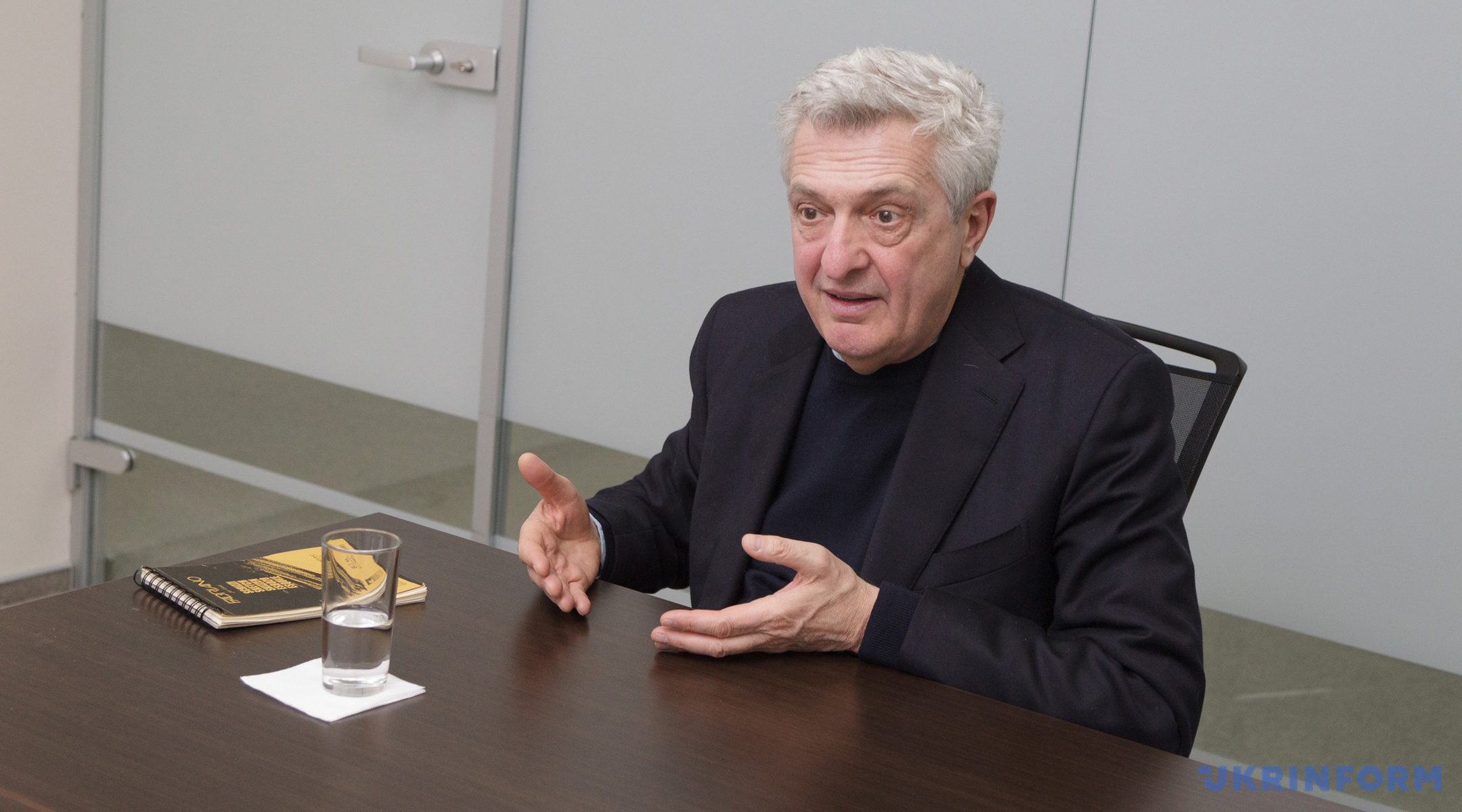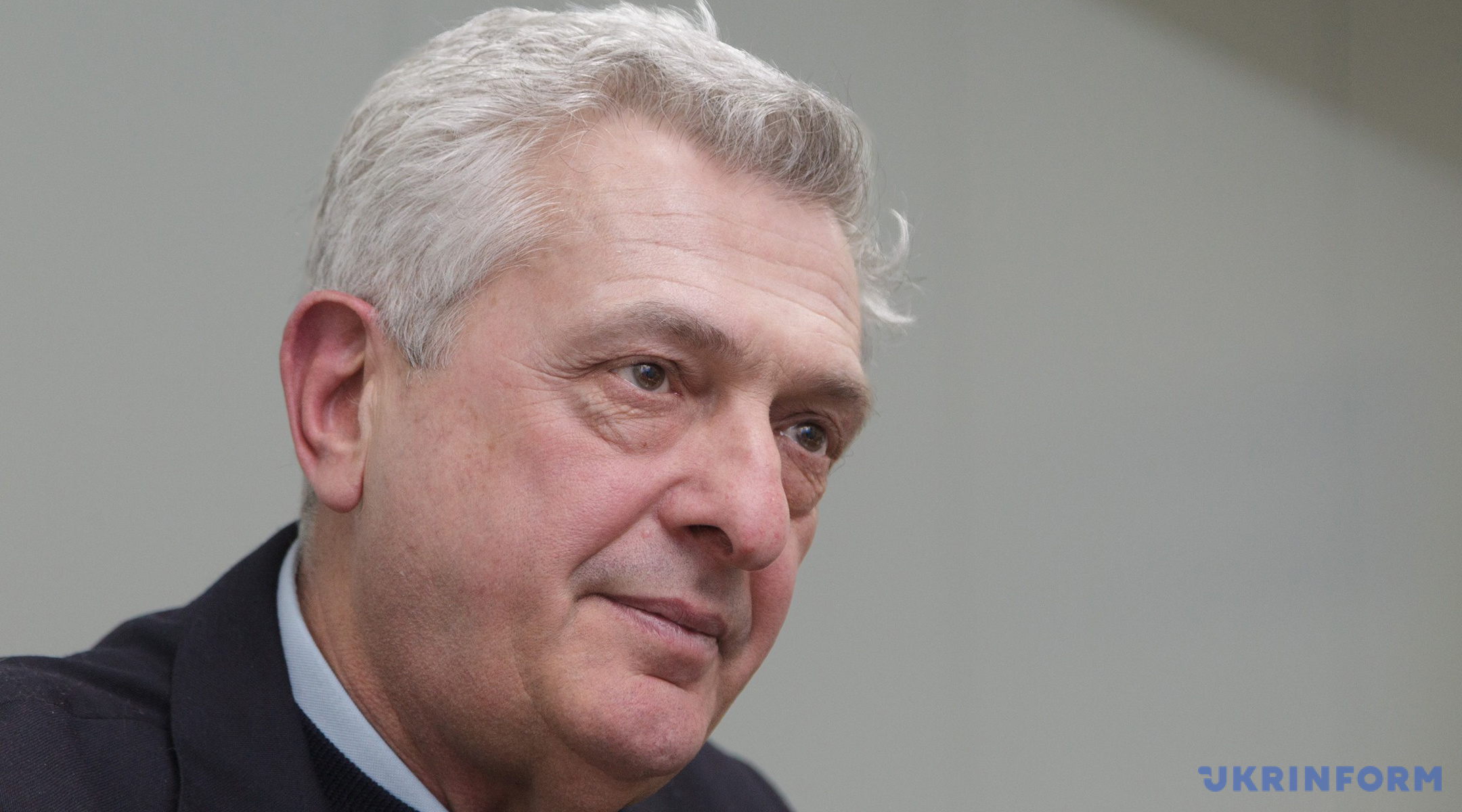The UN High Commissioner for Refugees, Filippo Grandi, is visiting Ukraine for the fourth time since the start of the full-scale invasion. In an interview with Ukrinform, he honestly admits his worries about the world's habituation to our war. He calls for solidarity between Ukrainians inside the country and those who fled it.
We also spoke about the UNHCR's assistance to displaced persons, the life of refugees in Europe, and obstacles from the Russian side.

MY BIGGEST FEAR IS THAT PEOPLE BECOME ACCUSTOMED TO WAR IN UKRAINE
- High Commissioner, it is already your fourth visit to Ukraine since the start of the full-scale war, and its agenda is vast — the Dnipropetrovsk, Odesa, Kharkiv, and Kyiv oblasts. I think I can ask you about tendencies you see in the lives of internally displaced people.
- The war in Ukraine continues to impact people while, unfortunately, others outside are starting to forget. When you speak about the war in Ukraine a hundred times, people become alienated from it and tend to forget about the incredible hardship it causes Ukrainians.
I heard in Kharkiv more than anywhere else because they are close to the frontline, but also in Kyiv and even in Odesa: please remember that the war is here. It is a strong message of our trip, which I will convey to the international community.
And the realization that people suffer is linked to the support of the international community Ukrainians still need. My biggest fear now is that people become accustomed to war in Ukraine, which leads to less attention and less sense of urgency. Other crises are emerging, like in Gaza, as well as the competition. The world's attention is, unfortunately, very short-lived and narrow. To remind the world that the war continues is my duty as the head of one of the biggest humanitarian organizations.
Another thing I observed already last year is the way the government organizes the humanitarian response and establishes an efficient system. I mean the central government, and very much at the oblast and municipality levels. I observed and also spoke to people, especially in places where air strikes or destruction happened. They are grateful for having gotten initial help, and I am very proud my organization was one of those who provided it.
But the champions are local organizations. With every trip, I am getting more admired by the numerous NGOs and community-based organizations, including our NGO partners They arrive ten minutes after the missile strikes to provide comfort to the victims or legal advice.
Finally, the most complex is what to do in the medium term. We do not know what will happen, and, unfortunately, the war will continue to pose a high risk for civilians. Humanitarian assistance will diminish, so we need to create more sustainability for the population. For example, there is a building in Kharkiv or streets in the Kyiv oblasts. They were destroyed, or Russia has passed and left them flat in 2022, and now they are completely rebuilt. Yesterday (23 January), the governor of the Kyiv oblast proudly showed me the ongoing rebuilding. Although people are waiting for it in many places, that is the way to go.
- You work in different vectors. The UN Refugee Agency provides emergency assistance and helps displaced persons in Ukraine and refugees abroad. If I get you right, you act in a scarcity. Given that, what will be your priority in the future?
- We will continue what we do now. Emergency help is complex and goes beyond giving a blanket. It is also ordering windows or building materials for people. A lot of it comes from the government here and is locally produced. We do a lot for people, especially the elderly. They are afraid something might happen, and they would not know what to do. So, we have invested a lot in psychological support. Social workers come to talk to them, advising them and putting them in touch with relatives. We do important legal advice.
I visited some places in Odesa where one needs documents to access the state's compensation. A lot of it is online in Ukraine. You are a digital society, but the older ones have difficulties, so we have workers explaining everything. A man of my age told me he had lost his house, and without this support, he could not get the inheritance of his mother, who had died of illness before. He needed money to rebuild his home, and we helped him with the document. We continue with that.
We give cash like other organizations. We are probably the biggest cash provider in Ukraine, among them. According to our calculations, we have reached 3 million people since 2022 and distributed about half a billion dollars. However, cash is good in the short term. Our next phase would be to make people more self-sustainable, even though there is a big problem with employment, especially in war areas. Our main goal is to make people less dependent on humanitarian aid. We started talking with the World Bank and the European Bank for Reconstruction and Development. They have resources, and I told them the key issue is employment.
One more point is paying attention to children. There is a psychological aspect, and many children are traumatized, especially in the war areas. I visited Kharkiv underground schools in the subway. Everyone should go and see how they live. The mayor showed me how they transformed the corridors of five subway stations into classrooms. Kids are safe and warm. They do not need to run to the shelter. It is another area where we need to think of these experiences.
The same is true in Europe, where around half of Ukrainian kids who are refugees do not go to school. As I understand, parents do not want them to go to German or Italian schools because they want them to remain Ukrainian. It is important, but they cannot deprive kids of education and socializing, so we need to find a way to build Ukrainian classes for them to maintain their culture and language.

EUROPE HAS DEALT VERY WELL WITH AN ENOURMOUS NUMBER OF UKRAINIAN REFUGEES
- You focused a lot on internally displaced people, but many of our citizens are still abroad. What about their rights?
- Honestly, the way Europe has dealt with an enormous number of Ukrainian refugees –— more than 6 million — has been very good. Their protection regime, established less than two weeks after the start of the escalation, is one of the most advanced treatments I have seen. The refugees became almost equivalent to Schengen citizens. But there are many "howevers".
One is education. The issue of children’s attendance at national schools in all European states needs to be addressed. And employment. Only about 40-50% of Ukrainian refugees in Europe of working age are employed. The statistics may be imperfect because we have a lot of ongoing informal work, but that is fairly low. Then you have access to health care, which is expensive in Europe — even the public. Many refugees cannot afford it.
I am not criticizing Europe because I think they did a lot. I remain vigilant about things we need to look into.
Next, we do big surveys every year or six months. The percentage of the refugees that tell us they want to return to Ukraine is still overwhelmingly high — 60-80%. How do we support that? Because the war is going on, many of them say they cannot return yet, but we need to think of how we can help people come back. We do not want to force anybody, and even after the return, they will not be as good as how they were before. The government needs a good strategy for that.
Back to your question, we advise the European Union, the UK, Switzerland, Norway, and Moldova to stick to the current practices. The challenge is the time limit of this temporary protection. I think it is three years, so the EU cannot extend it beyond this year. They tell us they have many proposals and are working on them to find the right way to extend it, but at the same time, we need to work on the return of Ukrainians. Your president has said many times that Ukraine needs its people to go back for its economy and its society. We need to balance all these considerations.
- High Commissioner, we have one country where everything is on the contrary bad. I speak about Russia. All Ukrainian refugees there are from the occupied territories. Russians are free to detain them or abduct their children. Is there any way for UNHCR to reach those people and meet their needs?
- The figures we publish about the Ukrainian refugees there are provided by the Russian Federation, which is 1.2 million as of June 2023.
We have a small office in Russia with very limited access. After some analyses, we found two ways of reaching refugees there. One is directly to go and see them. We are allowed to access some of those temporary accommodation centers. But you know, only a small part of Ukrainians in Russia live in them. We have been able to access up to 8,000 people this way. Then, we have a remote way to advise via phone or local partners. I think we reach up to 70,000 people this way. And this is of potentially more than 1 million, and usually, they are contacted on practical issues: how to access some assistance, food, travel documents, and so forth.
It is not easy. We do not have any prohibition of accessing refugees, but the bureaucracy is heavy and complex, so the access remains limited.

DO NOT JUDGE REFUGEES. NOT EVERYBODY MAKES THEIR OWN CHOICES
- Ukrainians perceive the situation with refugees as a crisis because of dead communities and no working labor in Ukraine. But some see opportunities not everyone has, claiming this is a massive diaspora that can lobby Ukraine's interest in the world, as Jewish or Armenian people do. On which side of the fence are you, High Commissioner, positive or negative?
- I would be leaning towards considering this also as an opportunity. A diaspora can be substantial for a country by sending remittances or gaining valuable skills that can be useful for the reconstruction of Ukraine.
I am not Ukrainian, but I would encourage you to see this positively, and you need to be in solidarity with each other. You are all affected by this violation of the UN Charter Russia perpetrated by the attack on Ukraine. So, UNHCR needs also to focus on this.
It is important for Ukrainians not to develop hostility toward those who left the country. I got this question from people in Odesa: we are here, fighting and suffering the hardship of the airstrikes, so what about those safe outside, supported by their respective governments? I told them never to judge people. Not everybody makes their own choices. Some chose to seek safety abroad, and some did not.
As a concluding thought, I say to plan for return is important. Most Ukrainians want to come back, and they need the conditions. The government needs to develop policies to encourage people to come back safely and with access to jobs and so on. You need them back to rebuild Ukraine and to be together again.
Ivan Kosiakin, Kyiv
Photos by Kyrylo Chubotin
